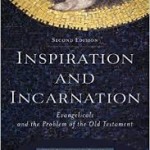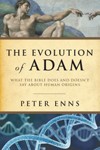 A recent article in the NYT talks about the collision between “beliefs and facts.” It struck a chord.
A recent article in the NYT talks about the collision between “beliefs and facts.” It struck a chord.
The author, Brendan Nyhan, argues that simply “knowing” scientific data, for example on evolution or climate change, isn’t as important as one’s beliefs and group identity–be it political or religious.
The force that determines where people eventually wind up is their ideology and the group to which they belong, which give them a coherent life-narrative.
Here is the key point of the article.
In a new study, a Yale Law School professor, Dan Kahan, finds that the divide over belief in evolution between more and less religious people iswider among people who otherwise show familiarity with math and science, which suggests that the problem isn’t a lack of information. When he instead tested whether respondents knew the theory of evolution, omitting mention of belief, there was virtually no difference between more and less religious people with high scientific familiarity. In other words, religious people knew the science; they just weren’t willing to say that they believed in it.
Mr. Kahan’s study suggests that more people know what scientists think about high-profile scientific controversies than polls suggest; they just aren’t willing to endorse the consensus when it contradicts their political or religious views. This finding helps us understand why my colleagues and I have found that factual and scientific evidence is often ineffective at reducing misperceptions and can even backfire on issues like weapons of mass destruction, health care reform and vaccines. With science as with politics, identity often trumps the facts.
Applying this to the question of Christianity and evolution, it’s not enough to “show people the facts” of the fossil record or genetics, even if in doing so some change of thinking results.
If anyone wants to re-educate evangelicalism about evolution, they need to do more than “re-educate” evangelicals–it takes more than slides and YouTube videos explaining the compelling evidence.
Education doesn’t correct bad thinking if one’s narrative relies on that bad thinking. One also has to offer an alternate coherent and attractive structure whereby people can handle these new ways of thinking without feeling as if their entire faith and life hang in the balance.
I wrote Inspiration and Incarnation, The Evolution of Adam, and The Bible Tells Me So with this process in mind. The “aha” moments series I am currently running lays out examples of others (and more to come) who have come to accept, for various reasons, an alternate “structure” for their theological narratives–specifically, how they read the Bible.
If you’ll allow me to get on my soap box, this entire evangelical dilemma comes down to: “What is the Bible and what do I do with it?”
Learning to read the Bible differently–in a manner that is consistent with reason, tradition, and experience (yes, that is the Episcopalian “three-legged stool” and 3/4 of the Wesleyan Quadrilateral)–is the key issue for evangelicalism in order to relax a bit about evolution and think through it rather than reacting and vilifying others.
Unfortunately, holding fast to familiar ways of reading the Bible is the core pillar of the evangelical narrative structure. And there you have the problem facing evangelicalism in a nutshell.
It’s a hard thing to let go of. But for those who are ready to, alternate narrative structures abound and many have found a good home elsewhere and haven’t lost their faith in the process.











